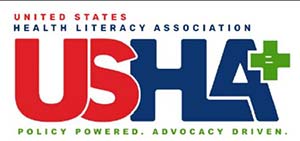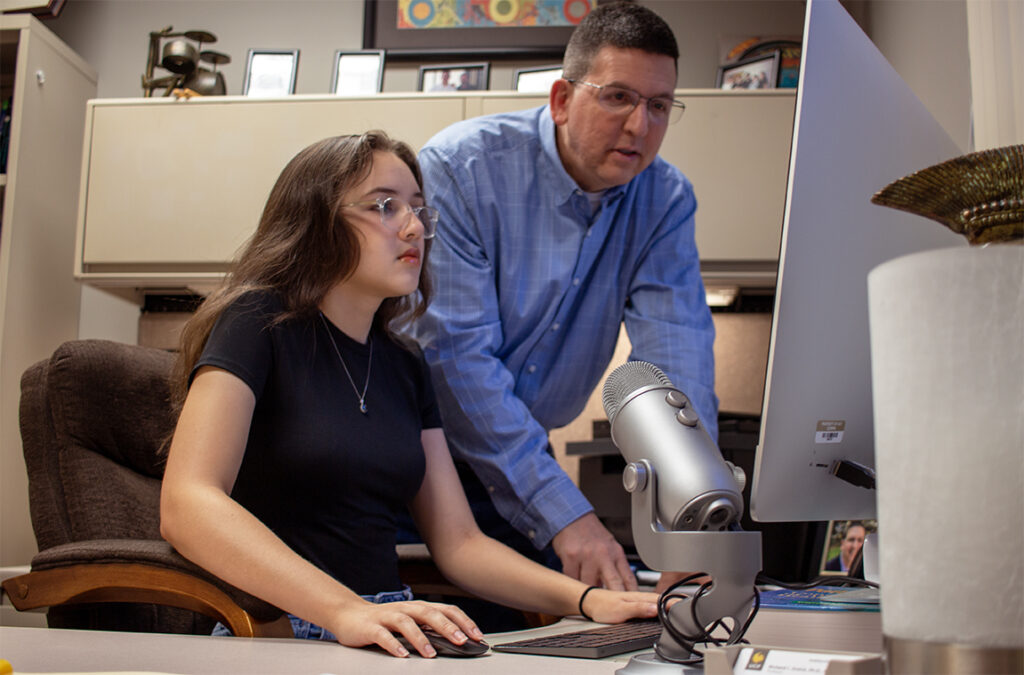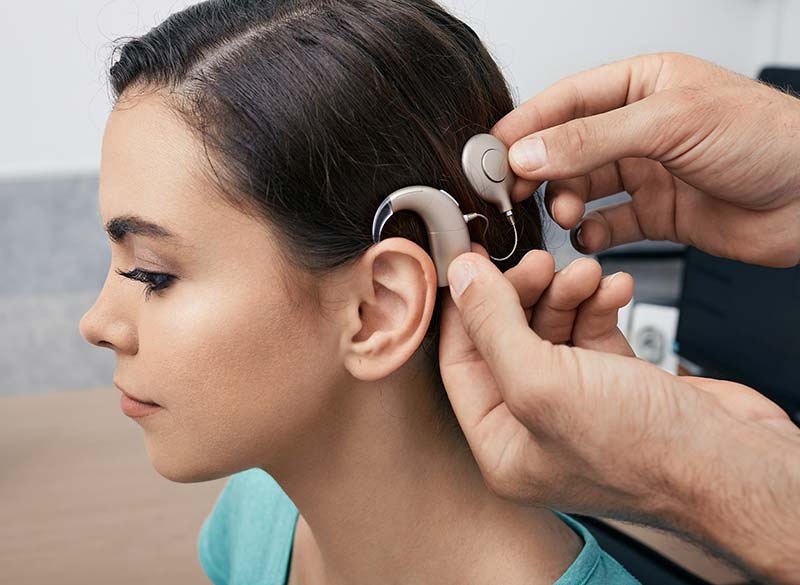Examining Patient-Provider Language and Interactions in Healthcare (EXPLAIN) Lab
UCF Communication Sciences and Disorders
Overview
The Examining Patient-Provider Language and Interactions in Healthcare (EXPLAIN) Lab is dedicated to advancing health literacy and patient-provider communication through research, education, and interdisciplinary collaboration. Our mission is to improve healthcare accessibility, comprehension, and outcomes by studying and enhancing communication strategies for individuals with communication disorders (CSD) and those who experience challenges in accessing understanding and using health information.
What We Do/ Research Capabilities:
The EXPLAIN Lab investigates how communication sciences and disorders intersect with health literacy, patient education, and healthcare communication. Our research explores:
- Health Literacy and Readability – Assessing and improving the readability, understandability, and actionability of patient education materials for individuals with communication disorders.
- Patient-Provider Communication – Examining how healthcare professionals communicate with patients who have speech, language, and hearing disorders, and developing strategies for improving shared decision-making.
- Simulation and Training in Healthcare Communication – Using simulation-based education to train healthcare providers and students in clear, effective communication with patients and families.
- Technology and AI in Health Communication – Investigating how AI tools can support the development of more accessible, patient-friendly health information.
- Interprofessional Collaboration – Working with healthcare educators, speech-language pathologists, audiologists, and medical professionals to bridge gaps in communication and promote patient-centered care.
Through this work, the EXPLAIN Lab strives to empower patients, providers, and educators by ensuring that everyone—regardless of communication ability—has access to clear, effective health information and support.
Current Research Projects
Readability of Patient Education Materials for Users of Augmentative and Alternative Communication (AAC) Devices
This project is being conducted by CSD undergraduate student Amanda Castro. This study evaluates if materials provided to AAC users and their care partners conform to Plain Language guidelines recommended by health literacy experts.
Using ChatGPT to Improve Readability of Spasmodic Dysphonia Patient Education Websites
This project was conducted by CSD undergraduate student Kelly Clevenger. This study examined how utilizing AI large language models (LLMs), specifically ChatGPT, can improve the readability of online patient education materials about spasmodic dysphonia, a neurological voice disorder which causes involuntary spasms in the muscles of the larynx. Kelly’s project was one of only eight finalists for the UCF Research Week “Impact of Research” Competition. She also presented this research at the National Council on Undergraduate Research in Pittsburgh, PA in April 2025. Her research has also been presented at the annual conference of the American Speech, Language and Hearing Association in Washington, DC in November 2025 and att UCF’s AI Research Day in February 2026.
This project was conducted by CSD undergraduate student Talia Tumminello. This study examined the readability of recently developed patient-reported outcome measures (PROMs) for individuals with dysphagia (disordered swallowing). A research article from this study is currently in press in the peer-reviewed publication Perspectives of the ASHA Special Interest Groups.
Readability and Quality of Online Patient Education Information about Dementia
This project is being conducted by CSD graduate student Lily Taczak-Miller. This study examines the readability and quality of online patient education information about dementia.
Advanced Bionics Answers UCF Researchers’ Call for Action with Health Literacy Collaboration
The UCF hearing health literacy research team consisting of Jennifer D. La Scala, M.A., Janel L. Cosby, Au.D, Ph.D., CCC-A, Linda I. Rosa-Lugo, Ed.D., CCC-SLP, and Richard I. Zraick, Ph.D., CCC-SLP, is collaborating with cochlear implant manufacturer Advanced Bionics in their commitment to advancing global access to hearing healthcare. Advanced Bionics is dedicated to improving hearing health literacy and enhancing the readability of their PEMs. As part of this commitment, the company launched all new materials in print and online in 2023. This collaboration aims to explore ways Advanced Bionics can continue improving access to hearing health information in both English and Spanish, further supporting their mission.
Beyond the Readability: Analysis of Advanced Bionics’ Revised Cochlear Implant Patient Education Materials
This project is being conducted by a recent CSD graduate student Jennifer D. La Scala. This study evaluates whether the readability scores of Advanced Bionics’ revised cochlear implant PEMs have improved when compared to their former CI brochure analyzed in her 2021 Honors in the Major Undergraduate Thesis. It also goes beyond the readability scores by analyzing the participants perspective of the understandability and actionability of the revised PEMs.
Meet Our Team
Director
Richard Zraick, Ph.D., CCC-SLP, CHSE
Dr. Zraick is serving as guest editor for a special forum on “Advancing Health Literacy in Communication Sciences and Disorders” for the American Journal of Speech-Language Pathology. The forum, the first of its kind on this topic, will feature an assortment of articles and is expected to be published in early Spring 2027.
Collaborators
- Ann N. Miller, Ph.D. – Collaborator
- Bonnie K. Slavych, Ph.D., CCC-SLP – Collaborator
- Samuel R. Atcherson, Ph.D., CCC-A – Collaborator


Selected Relevant Publications
Our laboratory makes a concerted effort to publish our findings in respected academic journals and present at regional, national, and international conferences. In addition to contributing to collective body of knowledge in a given field, presenting original data at conferences is a fun way for the lab’s students to enhance their self-confidence and network with other scientists.
- Phillips, A. & Zraick, R.I. (2025). Readability of audiology-related patient education materials on the American Speech-Language-Hearing Association website. Perspectives of the ASHA Special Interest Groups
- Miller, A.N, Zraick, R.I., Patel, S., Jeanjaquet, D.G., & Knox, D. (2025). Readability and actionability of information presented on a university communication disorders clinic website. Perspectives of the ASHA Special Interest Groups.
- Miller, A., Gawaskar, S., Duvuuri, V.N.S., Zraick, R.I., Soltani, K., Patel, O., Knox, D. (in press, 2025). Evaluating an intervention to lower health literacy demand of graduate student clinician cover letters to patients. Teaching and Learning in Communication Disorders, 9 (1).
- Slavych, B. K., Oliver, C., McIntyre, N. S., & Zraick, R. I. (2025). Online resources and educational materials relating to autism spectrum disorder. Health Education Journal, 84(5), 558-573.
- Slavych, B.K., Atcherson, S.R., & Zraick, R.I. (2024). Using ChatGPT to improve health communication and plain language writing for students in communication sciences and disorders Perspectives of the ASHA Special Interest Groups.
- Schellhase, K.C., McIntosh, A.A., Jennings-Collier, I.I.A., Dininny, M.D., Zraick, R.I., & Mangum, L.C. (2023). Readability of postconcussion home care instructions. International Journal of Athletic Training and Therapy.
- La Scala, J.D., Zraick, R.I., Rosa-Lugo, L.I. & Cosby, J.L. (2022). Readability of cochlear implant brochures: A potential factor in parent decision-making. American Journal of Audiology.
- Steiner, S., Slavych, K., & Zraick, R.I. (2022). Assessment of online patient education material about dysphagia. Dysphagia.
- Quintero, S., Zraick, R.I., Rosa-Lugo, L.I., La Scala, J.D. (in press, 2022). Readability of IDEA Part B procedural safeguards notices written in Spanish. Language, Speech, and Hearing Services in Schools.
- Noblin, A.M., Zraick, R.I., Miller, A.N., Schmidt-Owens, M., Deichen, M., Tran, K., & Patel, R. (in press, 2022). Readability and suitability of information presented on a university health center website. Perspectives in Health Information Management, 19, 4.
- Miller, A.N., Bharathan, A., Duvuuri, V.N.S., Navas, V., Luceno, L., Zraick, R.I., Atmakuri, S., Schmidt-Owens, M., Deichen, M., Owens, T., & Thrash, K. (2022). Use of seven types of medical jargon by male and female primary care providers at a university health center. Patient Education and Counseling.
- Miller, A.N., Zraick, R.I., Atmakuri, S., Luceno, L., Navas, V., Schmidt-Owens, M., Deichen, M., Ayers, T., & Thrash, K. (2021). Characteristics of teach-back as practiced in a university health center, and its association with patient understanding, self-efficacy, and satisfaction. Patient Education and Counseling.
- Stefu, J., Slavych, B.K., & Zraick, R.I. (2021). Patient-reported outcome measures in voice: An updated readability analysis. Journal of Voice.
- Zraick, R.I., Azios, M., Handly, M.M., Bellon-Harn, M.L., & Manchaiah, V. (2021). Quality and readability of internet information about stuttering. Journal of Fluency Disorders.
- Gray, S.A., Zraick, R.I., & Atcherson, S.R. (2019). Readability of IDEA part B procedural safeguards: an update. Language, Speech and Hearing Services in the Schools.
- Nicholson, N.N., Atcherson, S.R., Martin, P., Spragins, M.G., Schlagenhauf, L., & Zraick, R.I. (2016). Readability, user-friendliness, and key content analysis of newborn hearing screening brochures. Journal of Early Hearing Detection and Intervention.
- Hadden, K.H., Zraick, R.I., & Atcherson, S.R. (2016). Health Literacy Implications for Head and Neck Cancer Patients. In B. Hoffman Ruddy, H. Ho, C. Sapienza & J.L. Lehman (Eds.), Cases in Head and Neck Cancer (pp. 239-248). San Diego, CA: Plural Publishing.
- Atcherson, S.R., Delaune, A.E., Hadden, K., Zraick, R.I., Kelly-Campbell, R.J., Minaya, C.P. (2014). A computer-based readability analysis of consumer materials on the American Speech-Language-Hearing Association website. Contemporary Issues in Communication Sciences and Disorders.
- Atcherson, S.R., Zraick, R.I., & Hadden, K. (2013). A need for health literacy curriculum: Knowledge of health literacy among U.S. audiologists and speech- language pathologists in Arkansas. Education for Health.
- Atcherson, S.R., Richburg, C.M., Zraick, R.I., & George, C.M. (2013). Readability of questionnaires assessing listening difficulties associated with (central) auditory processing disorders. Language, Speech and Hearing Services in Schools.
- Zraick, R.I. & Atcherson, S.R. (2012). Readability of patient-reported outcome questionnaires for use with persons with dysphonia. Journal of Voice.
- Zraick, R.I. Atcherson, S.R., & Brown, A.M. (2012). Readability of patient-reported outcome questionnaires for use with persons who stutter. Journal of Fluency Disorders.
- Zraick, R.I., Atcherson, S.R., & Ham, B.K. (2012). Readability of patient- reported outcome questionnaires for use with persons with swallowing disorders. Dysphagia.
- Pace, P., Atcherson, S.R. & Zraick, R.I. (2012). A computer-based readability analysis of patient-reported outcome questionnaires related to oral health quality of life. Patient Education and Counseling.
- Kelly-Campbell, R.J., Zimmerman, K.R., Atcherson, S.R., & Zraick, R.I. (2012). Readability of audiologic self-report assessment. Journal of the Academy of Rehabilitative Audiology.
- Atcherson, R., Zraick, R.I. & Brasseux, R.E. (2011). Readability of patient-reported outcome questionnaires for use with persons with tinnitus. Ear and Hearing.









